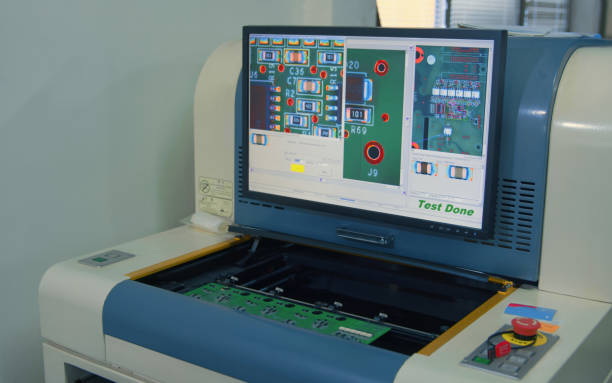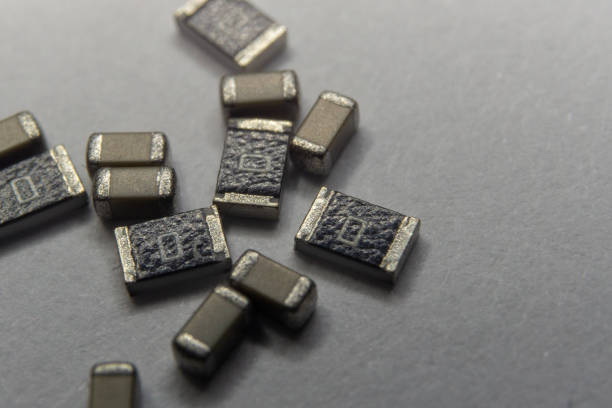Content Menu
● Understanding SMT Manufacturing
● The Importance of Wholesale SMT Manufacturing
>> Scalability and Flexibility
>> Enhanced Quality Control
>> Cost Reduction
>> Faster Time to Market
>> Support for Advanced Technologies
● Applications of Wholesale SMT Manufacturing
● Future Trends in Wholesale SMT Manufacturing
>> Automation and Robotics
>> Sustainability Initiatives
>> Smart Manufacturing
>> Customization and Personalization
● Conclusion
● Related Questions
>> 1. What is the difference between SMT and through-hole technology?
>> 2. How does wholesale SMT manufacturing improve product quality?
>> 3. What industries benefit from wholesale SMT manufacturing?
>> 4. What are the cost benefits of using wholesale SMT manufacturing?
>> 5. How is automation impacting wholesale SMT manufacturing?
In the rapidly evolving world of electronics, the demand for efficient, high-quality manufacturing processes has never been greater. One of the most significant advancements in this field is the rise of wholesale SMT (Surface Mount Technology) manufacturing. This article explores why wholesale SMT manufacturing is becoming essential for electronics, examining its benefits, applications, and the future of this technology.

Understanding SMT Manufacturing
Surface Mount Technology (SMT) is a method used to mount electronic components directly onto the surface of printed circuit boards (PCBs). This technique has largely replaced the older through-hole technology, where components were inserted into holes drilled in the PCB. The advantages of SMT include:
- Higher Component Density: SMT allows for more components to be placed on a PCB, enabling smaller and more compact designs.
- Improved Performance: SMT components are generally lighter and have shorter electrical paths, which can enhance performance.
- Cost Efficiency: The manufacturing process is faster and requires less material, reducing overall production costs.
The Importance of Wholesale SMT Manufacturing
Scalability and Flexibility
Wholesale SMT manufacturing lines are designed to handle large volumes of production efficiently. This scalability is crucial for electronics companies that need to meet varying demands without compromising quality. The flexibility of these lines allows manufacturers to quickly switch between different products, accommodating rapid changes in market trends.
Enhanced Quality Control
Quality control is paramount in electronics manufacturing. Wholesale SMT manufacturing incorporates advanced technologies such as automated optical inspection (AOI) and X-ray inspection systems. These technologies ensure that every component is placed correctly and that solder joints are reliable, significantly reducing the risk of defects.
Cost Reduction
By utilizing wholesale SMT manufacturing, companies can achieve significant cost savings. The efficiency of the SMT process reduces labor costs and minimizes material waste. Additionally, the ability to produce high volumes of products quickly allows manufacturers to take advantage of economies of scale.
Faster Time to Market
In the competitive electronics market, speed is essential. Wholesale SMT manufacturing enables faster production cycles, allowing companies to bring their products to market more quickly. This rapid turnaround is critical for staying ahead of competitors and meeting consumer demands.
Support for Advanced Technologies
As electronics become more sophisticated, the need for advanced manufacturing techniques grows. Wholesale SMT manufacturing supports the integration of new technologies, such as Industry 4.0, which emphasizes automation and data exchange in manufacturing processes. This integration enhances operational efficiency and product quality.

Applications of Wholesale SMT Manufacturing
Wholesale SMT manufacturing is widely used across various sectors, including:
- Consumer Electronics: Smartphones, tablets, and laptops rely heavily on SMT for their compact designs and high performance.
- Automotive: Modern vehicles incorporate numerous electronic components, all of which benefit from the efficiency of SMT manufacturing.
- Medical Devices: Precision and reliability are critical in medical electronics, making SMT an ideal choice for manufacturing devices like pacemakers and diagnostic equipment.
- Telecommunications: The telecommunications industry demands high-quality, reliable components, which SMT manufacturing can provide.
Future Trends in Wholesale SMT Manufacturing
The future of wholesale SMT manufacturing looks promising, with several trends shaping its evolution:
Automation and Robotics
The integration of robotics in SMT manufacturing lines is expected to increase. Automated systems can enhance precision, reduce labor costs, and improve production speed.
Sustainability Initiatives
As environmental concerns grow, manufacturers are focusing on sustainable practices. This includes reducing waste, recycling materials, and using eco-friendly components in SMT processes.
Smart Manufacturing
The adoption of smart manufacturing technologies, such as IoT (Internet of Things) and AI (Artificial Intelligence), will further enhance the efficiency of wholesale SMT manufacturing. These technologies can provide real-time data analytics, predictive maintenance, and improved supply chain management.
Customization and Personalization
As consumer preferences shift towards personalized products, wholesale SMT manufacturing will need to adapt. This may involve more flexible production lines that can handle smaller batch sizes without sacrificing efficiency.
Conclusion
Wholesale SMT manufacturing is becoming essential for the electronics industry due to its scalability, cost efficiency, and ability to support advanced technologies. As the demand for high-quality electronic products continues to rise, manufacturers must embrace SMT to remain competitive. The future of wholesale SMT manufacturing is bright, with trends towards automation, sustainability, and smart manufacturing paving the way for continued innovation.

Related Questions
1. What is the difference between SMT and through-hole technology?
SMT involves mounting components directly on the surface of PCBs, while through-hole technology requires components to be inserted into holes. SMT is generally more efficient and allows for higher component density.
2. How does wholesale SMT manufacturing improve product quality?
Wholesale SMT manufacturing incorporates advanced inspection technologies that ensure components are placed correctly and solder joints are reliable, significantly reducing defects.
3. What industries benefit from wholesale SMT manufacturing?
Industries such as consumer electronics, automotive, medical devices, and telecommunications all benefit from the efficiency and reliability of wholesale SMT manufacturing.
4. What are the cost benefits of using wholesale SMT manufacturing?
Wholesale SMT manufacturing reduces labor costs, minimizes material waste, and allows for economies of scale, leading to significant overall cost savings.
5. How is automation impacting wholesale SMT manufacturing?
Automation enhances precision, reduces labor costs, and improves production speed, making wholesale SMT manufacturing more efficient and reliable.




















